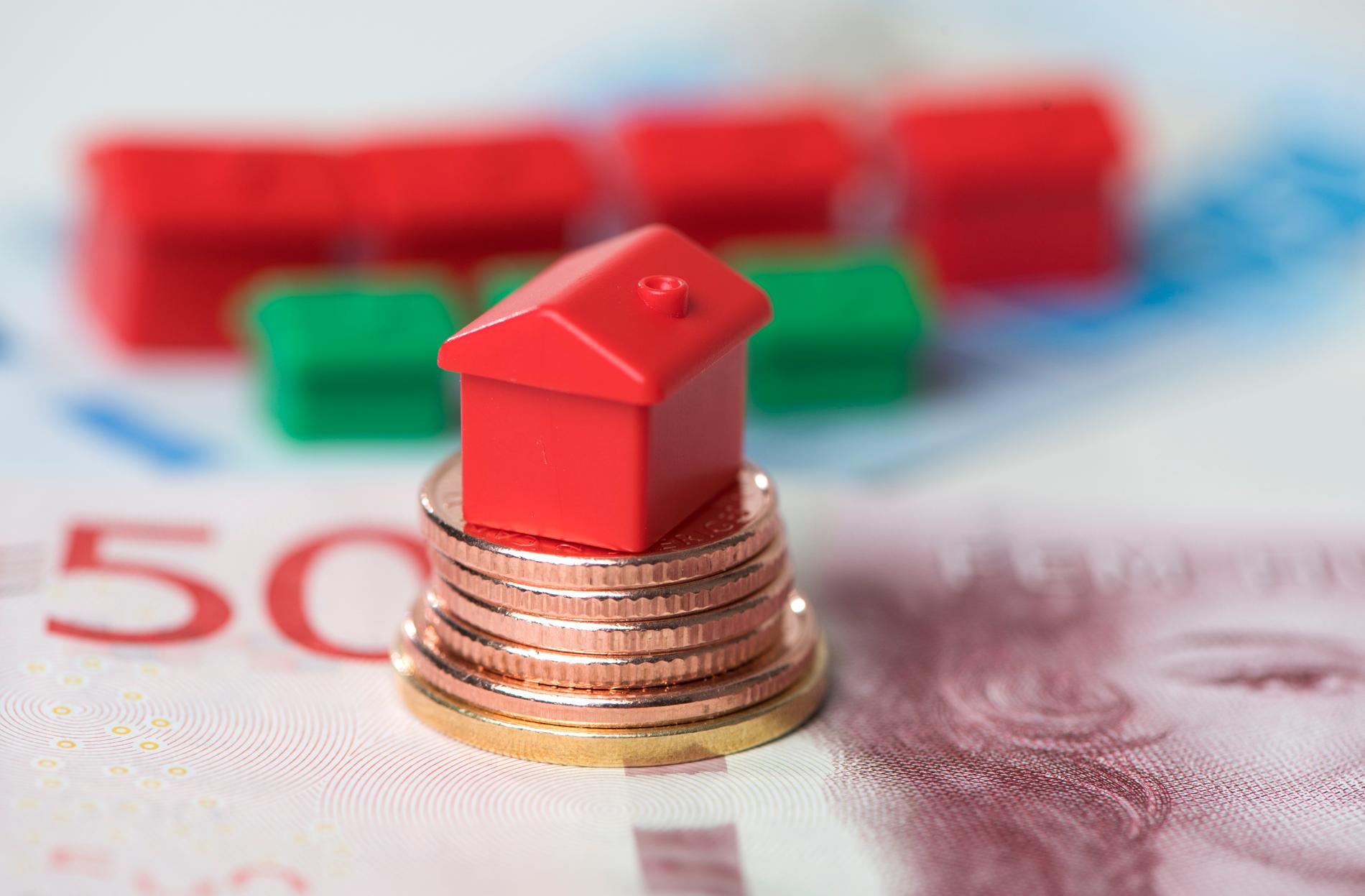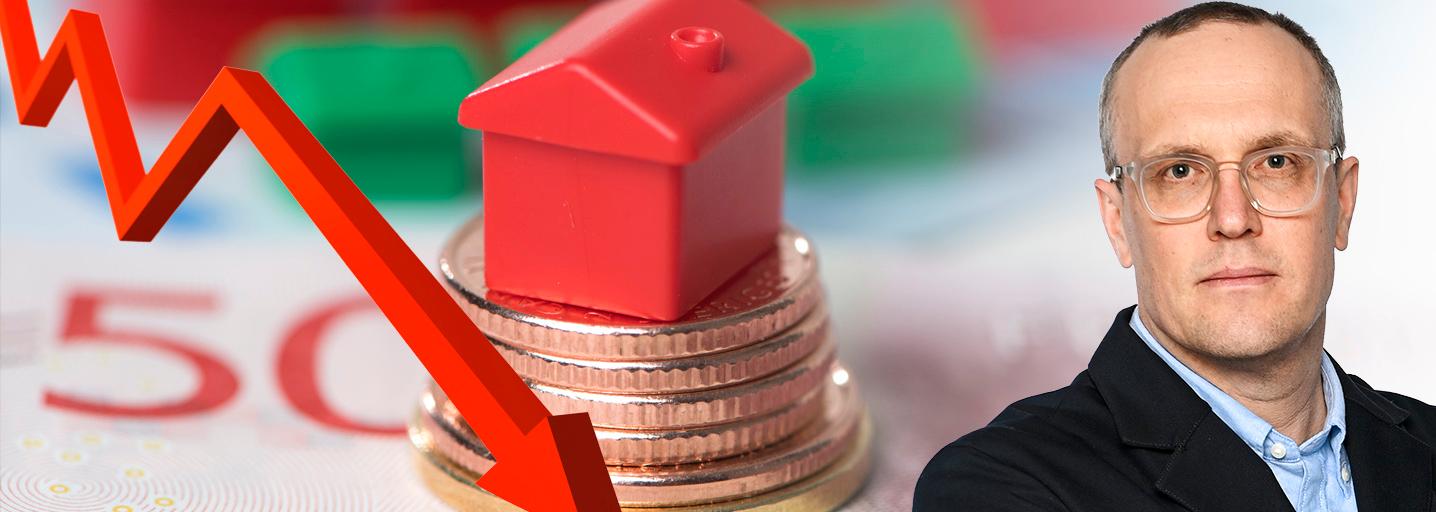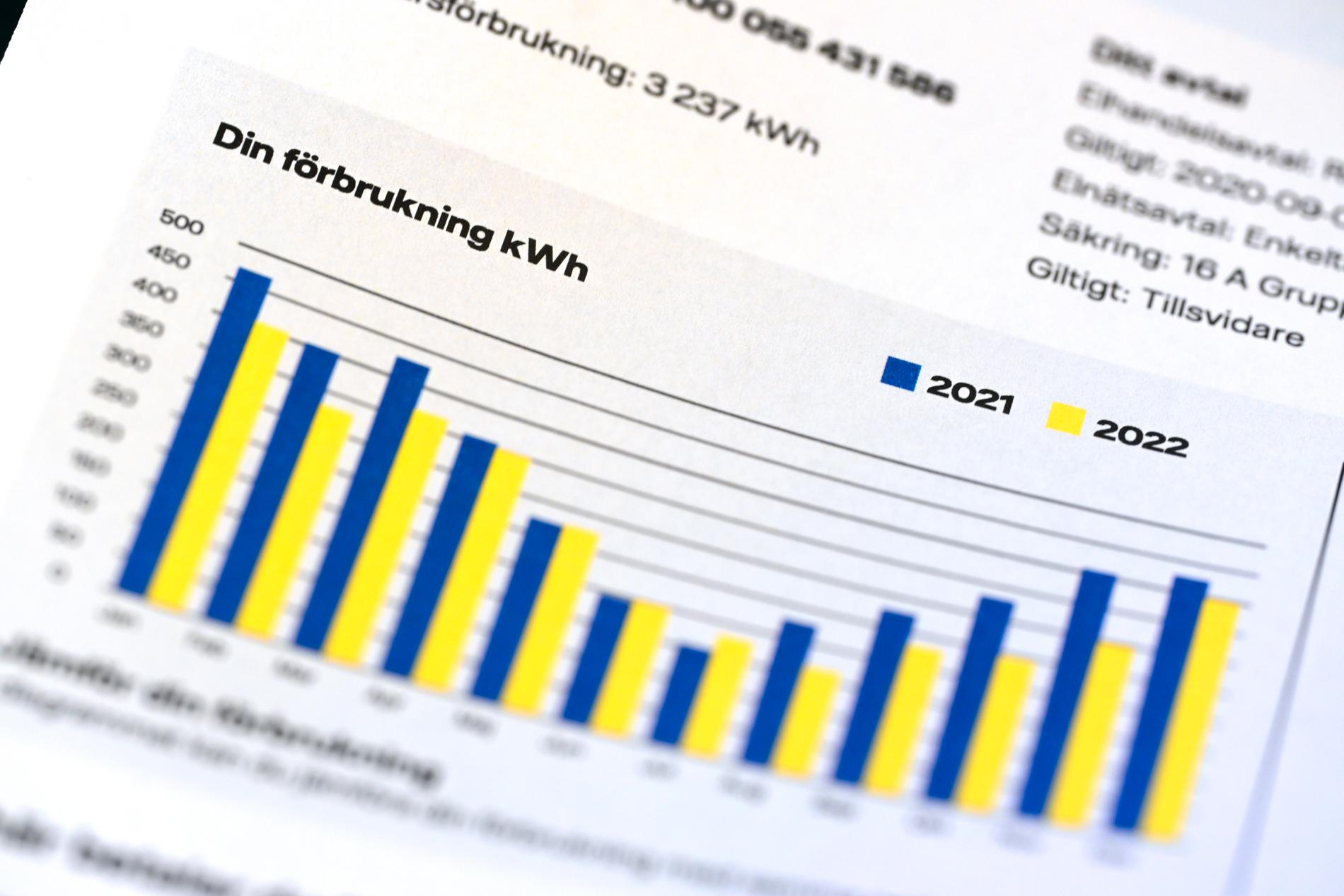Macroeconomics
Sweden's loan bubble has burst - now the economy is sinking
Looks like falling more than during the 90s crisis
Of:
Andreas Cervenka
Published: Today 15.49
Updated: Today 16.34
COLUMNISTS
Anyone who has doubted whether the Swedish economy has been drugged by low interest rates can stop brooding.
More expensive loans have triggered a free fall in the housing market and contributed to the Swedes' consumption being riveted.
In 2023, the economy looks set to fall more than during the crisis years of the 90s.
Stagflation. That's what it's called in financial lingo when inflation is high at the same time as the economy shrinks. It is a significantly more difficult situation than a normal recession. Then the central banks usually lower interest rates to soften the blow and support the economy, but if inflation is high, that doesn't work. Instead, interest rates must rise, which is exactly what has happened over the past year.
In this precarious situation, often described as a kind of nightmare scenario by economists, Sweden finds itself. It was confirmed on Monday morning when Statistics Sweden released preliminary figures on Swedish GDP for the fourth quarter of 2022. The economy shrank by 0.6 percent compared to the previous quarter. In December, the decline was 1.8 percent compared to the same month last year.
It is primarily the Swedes' consumption that is now stalling. Figures released on Friday showed that Christmas shopping was abysmal. Sales in the retail trade plummeted by as much as 8 percent compared to the same month in 2021, and in so-called non-durable goods (think clothes, refrigerators and televisions), the decline was as much as 10.5 percent.
This is already starting to take its toll in an increased number of bankruptcies and rising unemployment. So far this year, 4,700 people have been notified, compared to 1,400 in the whole of January last year.
So what has happened?
The big change is, of course, inflation, which causes our incomes to drop sharply. And with the sharply rising interest rates. And the latter hits much harder for many than more expensive food.
The Swedes have for a long time increased their borrowing, largely linked to rising house prices. More expensive housing is often blamed on migration to the cities and too little housing construction. But the most important factor seems to be the interest rate, at least judging by what happened in 2022.
According to Valueguard, Swedish housing prices have fallen by 16 percent compared to the peak levels last year, for villas the decline is 18 percent.
Why? The rising interest rates have caused the demand for loans to collapse.
Electricity support package number two is now ready - the sum lands at SEK 10 billion. Photo: Janerik Henriksson/TT
In December, household loans grew at the slowest rate since measurements began in 2006, according to Statistics Norway. The increase in one month was only SEK 3.5 billion. In December 2021, the corresponding figure was 30 billion.
In the second half of 2022, after the Riksbank started raising interest rates, Swedes' debts rose by a total of 38 billion. In the same period in 2021, the increase was 155 billion and in 2020 121 billion.
It is therefore a matter of a dramatic deceleration.
Even consumer loans, which have increased rapidly for many years, are now falling. A complete turnaround.
This is also seen in the amount of money circulating in the economy. After expanding by a record 18 percent in 2020 and 10 percent in 2021, the money supply fell by 1 percent between November and December.
The decline is faster than during the financial crisis of 2008 and 2009, a clear sign of crisis.

Last week, several major banks came out with forecasts for the economy this year and next year. They showed that Sweden will be hit harder in the recession than almost all other comparable countries. Nordea predicted a decline in GDP of 2 percent in 2023. In that case, it would be worse than in any of the crisis years 1991, 1992 and 1993 and on a par with the unique pandemic year 2020.
The fact that Sweden's economy has reacted very negatively to rising interest rates does not immediately come as a surprise. Sweden entered 2022 with the fourth highest private debt (household plus business) in the entire world, beaten only by Hong Kong, Luxembourg and Switzerland, according to statistics from the Bank for International Settlements.
Now we pay the bill.
What happens next? Well, by all accounts the Riksbank will continue to raise interest rates. It will not directly improve the situation for the economy. Wise or not? There is reason to return to it.
Av:
Andreas Cervenka


Inga kommentarer:
Skicka en kommentar